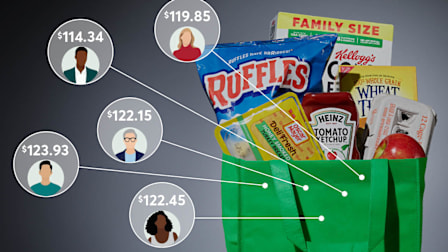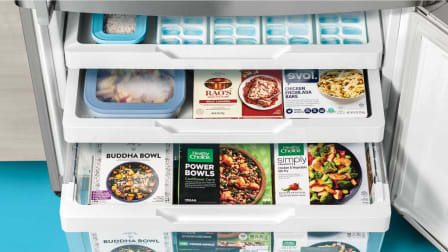Why Are Brown Eggs More Expensive Than White Ones?
The answer to that question—and others—will help you save on this nutritious staple

With egg prices still elevated—the Department of Agriculture predicts an overall increase of nearly 25 percent this year—it can be hard to squeeze the cost of a carton into a tight budget. But considering eggs’ versatility and the nutrition they provide (which we’ll detail in a moment), it’s worth finding a way to keep putting them in your grocery cart.
But if you’re someone who swears by brown eggs—which tend to cost more than eggs with white shells—higher egg prices might have you wondering: Is paying more for brown eggs worth it?
As it turns out, the color of an egg’s shell is determined by the breed of chicken that lays it. Brown eggs often cost more than white ones because they’re usually laid by a larger breed of hen that requires more food, which makes the eggs more expensive for farmers to produce. But there’s no nutritional or environmental advantage to brown eggs.
Regardless of shell color, one large egg has about 70 calories, 6 grams of protein, 2 grams of saturated fat, about 185 mg of cholesterol, and a long list of other nutrients.
Is It Worth Paying More for Free-Range or Organic Eggs?
It depends on what you think you’re getting. Take free-range eggs. They may cost more because of the way the hens are raised. But the term can be misleading. While "free-range" birds aren’t caged and have more access to the outdoors, the facility in which they’re housed may still be crowded, and the outdoor area may be quite small. To ensure you’re paying for eggs from birds that have a large outdoor run or pasture, look for a Certified Humane or American Humane Certified label along with one that says "free range" or "pasture raised."
As for USDA-certified organic eggs, the hens that lay them must be provided with organic feed. And in small studies, organic eggs have been found to contain lower amounts of saturated fat. In addition, research suggests that people who consume organic eggs have increased levels of lutein and reduced levels of C-reactive protein, which is a marker of inflammation.
How Can I Ensure the Eggs I Buy Will Last?
Store eggs properly: In their original carton, eggs will keep for three to five weeks in the refrigerator at a temperature of 37° F to 40° F. Be sure to place the carton on a lower shelf and avoid the door, where temperatures can fluctuate. You can also freeze eggs for up to a year by beating the yolks and whites together (or you can freeze the whites and yolks separately). To keep yolks from thickening, add a bit of salt, sugar, or corn syrup before you freeze them. (You won’t encounter this problem when you freeze whites.)
Do I Have to Throw Out Eggs That Are Past Their Expiration Date?
Not necessarily. The expiration date stamped on a carton indicates when the eggs inside are past their peak—it doesn’t mean they are unsafe to eat. You only need to toss an egg that’s past the date on the carton if it’s cracked or smells "off." Use the freshest eggs in dishes where flavor matters the most—such as omelets, quiches, and soufflés—and use older ones for baking and hard-boiling.
Are There Good Egg Substitutes?
If eggs are scarce and you’re accustomed to egg-white omelets or sandwiches, you might consider buying a carton of pasteurized liquid egg whites. But be aware that unopened egg whites will keep for only seven days in the refrigerator, and after being opened, they must be used within three days. Powdered, or dehydrated, eggs (whole, whites, or yolks) work best in recipes. They’ll keep for up to a year and don’t need to be refrigerated. Another option for baked goods recipes is egg replacers. These include ground flaxseed (1 tablespoon in 3 tablespoons of hot water is the equivalent of one egg), silken tofu (¼ cup replaces one egg), or aquafaba, the liquid in canned chickpeas (3 tablespoons can replace one egg).
Best Health Products of the Year
Bathroom Scales • Electric Toothbrushes • Exercise Bikes • Fitness Trackers • Home Blood Pressure Monitors • Humidifiers • Insect Repellents • Sunscreens • Treadmills
Editor’s Note: A version of this article appeared in the July 2025 issue of the Consumer Reports On Health Newsletter and in the January 2024 issue of Consumer Reports magazine.




